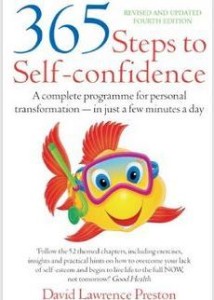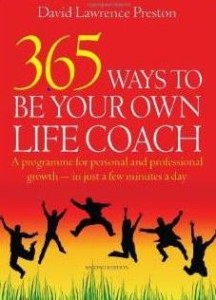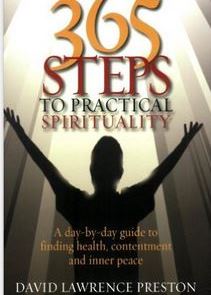Nature or nurture?
One of the questions that has occupied psychologists for years is ‘Are we a result of ‘nature’ or ‘nurture’?’ To what extent are we shaped by childhood experiences, parenting, schooling and environment? What part does our genetic inheritance play? What really determines the sort of people we are and who we become?
Some believe that where we grow up, our parents treatment of us and the experiences we had as children are largely responsible for who we become. They’re right to some extent, these are important – but it doesn’t explain how people from similar backgrounds with comparable levels of ability – even twins – end up leading very different lives.
Ability and hard work don’t account for all of it either it – it takes just as much effort to empty dustbins or work long hours in a shop as it does to be a company chairman.
The answer is, whatever our origins, the world – which includes other people – responds to what we think, believe, imagine, say and do. So to harness our inner resources we must be self-aware. We must know ourselves before we can truly know anything else. The key is understanding the workings of your mind.
Is the ‘brain’ the same as the ‘mind’?
Let’s imagine you bought a new computer. What’s the first thing you would do, once you’ve unpacked it and plugged it in? Surely you would consult the operating manual. But you’re not provided with one for the ‘computer’ between your ears! You need an instruction manual for the mind.
The brain, unlike the mind, is a physical thing. It’s a small organ weighing about 1½ Kg., housed in the space between the ears. It’s the physical vehicle through which the mind operates. It’s often compared to a computer, and in some ways it does resemble one, but it is far superior.
It is an astonishing fact that most people use less than 5% of their brain’s capacity – if that!
If the brain is the hardware, the mind is the software. The mind is an activity. It is a mass of accumulated thought-forms – ideas, beliefs, memories, attitudes, habits, prejudices and so on. It can’t be seen or weighed, but like electricity, we know it’s there and can monitor its workings.
Programming and Conditioning
In the first few years of life, our adult caretakers teach us what they think we should be. Most of us accept this programming and carry it into adulthood.
Conditioning is the way one person uses reward and punishment to shape the behaviour of another. It is how circus animals are trained and military officer enforce discipline. It’s the chief way in which we learn to relate to the world when we are young. It plays a big part in shaping our behaviour, our attitudes and our beliefs.
This is how it works: if a young boy (or girl) pleases his/her adult caretakers, they respond favourably. This is extremely pleasurable for the child and encourages a repetition of the behaviour (i.e. reinforces it). But if the adult caretakers disapprove, s/he will be told off, punished or have privileges withdrawn, which discourages a repeat of the behaviour.
Conditioning can be beneficial when administered by caring parents who believe in empowering their children. But many parents are ill informed, critical of themselves and their children. Children are quick learners and great imitators: their parents’ and teachers’ habits are soon passed on, and of course, once they reach the teenage years, the peer group and media influences come into play too.
Much of the damage is done in run-of-the-mill remarks which adults regard as insignificant – ‘Don’t…’. ‘Stop it or else…’ ‘You can’t…’ ‘Who do you think you are?’ Young children often take such comments to heart or interpret them in ways which weren’t intended, e.g.
- ‘Let me do it.’ (You’re not capable.)
- ‘You’re just as stupid as your father.’ (You’re not OK and neither is he.)
- ‘Can’t you see I’m busy?’ (You’re not a priority.)
Beliefs about life in general are also handed down, e.g.
- ‘You can’t trust anyone these days.’ (Don’t be too open with people.)
- ‘All successful people lie and cheat to get to the top.’ (So you must too.)
- ‘There’s no point in going to college. It doesn’t get you anywhere.’ (Success is a matter of privilege or luck.)
- I’m damaged by my childhood and I can’t change. It’s just the way I am.
Research shows that as much as fifty percent of our programming is in place by the age of six; eighty percent by the age of twelve.
Psychologists used to argue that our conditioning is virtually impossible to change, but we now know that this is not true. If it were, then most psychotherapy would be ineffective.
Acknowledge the importance of your conditioning on your thinking and behaviour, then take responsibility for how you handle it.
See your programming and conditioning for what it is – simply part of your learning, some of it very valuable, and some if it worthless or unhelpful. Anything learned can be unlearned and relearned. It’s just a matter of understanding a few basic principles and using some simple techniques. Whatever has gone before can only affect the future if you let it. In a psychological sense, what matters is not where you’re from, but where you’re at. To believe otherwise is tacitly allowing yourself to be controlled by the thoughts and feelings of a young child – the child you once were. That wouldn’t make sense, would it?
Your genetic inheritance
A hundred years ago it was common for behavioural psychologists to argue that only a small proportion of our characteristics comes from our genes. Then later, largely thanks to studies of identical twins, some scientists argued that half or more of our character is genetic.
Increasingly, the role of our biochemistry is also being recognised. We know, for example, that the levels of certain hormones at pivotal phases of our development controls our level of ‘maleness’ or ‘femaleness’, our sexual orientation, predisposition to aggression, anxiety and depression, and a range of abilities including mathematical reasoning, spatial awareness and emotional skills.
Furthermore, in the past few years, scientists have discovered that our genes do not control anything, they merely create potential which can be switched on or off by environmental and psychological influences. For example, a genetic predisposition to certain health issues can be ameliorated by a good living environment and a healthy lifestyle. So it’s not the genes themselves that make us the way we are, but how our life circumstances and psychological factors such as attitude allow genetic factors to express.
The debate is far from settled, but it is clear that only a small part- perhaps 25-35% – of our adult character comes to us with our genetic and biochemical make-up, but consider this: if even a third of your characteristics are fixed, two thirds are not! That gives you a great deal of scope to make the best of who you are!
Copyright David Lawrence Preston 2018, All Rights Reserved

Follow me on Facebook and Twitter @David_L_Preston

How To Books, 2010









